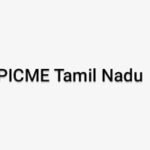According to the Hindu Marriage Act 1955, a petition for ‘Mutual Divorce’ can be filed if you and your spouse face difficulties and decide to separate legally. You can also apply for divorce in Tamilnadu if the other party doesn’t want a divorce, which is a ‘contested divorce’.
Contents
- 1 Apply for divorce in Tamilnadu.
- 1.0.1 Where can you apply for divorce in a Tamilnadu petition?
- 1.0.2 Necessary documents
- 1.0.3 Eligibility
- 1.0.4 How to apply for divorce in Tamilnadu?
- 1.0.5 Petition to file for divorce:
- 1.0.6 Appearing before the court and checking the petition:
- 1.0.7 Passing orders for the recording of statements on oath:
- 1.0.8 First Motion and Second Motion:
- 1.0.9 Second Motion and Final Hearing of the Petition
- 1.0.10 Divorce Decree:
- 1.0.11 Office Locations & Contacts
- 1.0.12 FAQs
Apply for divorce in Tamilnadu.

Under the Hindu Marriage Act 1955, both spouses can dissolve their marriage by a divorce decree on more than one ground mentioned in Section 13.
Section 28 of the Marriage Act and Section 10A of the Divorce Act of 1869 also provide for divorce by mutual consent. The conditions under Section 13B of the Hindu Marriage Act are as follows:
- The spouse has been living separately for one year or more.
- That they are unable to live together.
- And both spouses mutually agree that the marriage has completely broken down.
- That is why the wedding should be annual. In these circumstances, divorce can be filed by mutual consent.
According to the Indian legal system, the divorce process begins with filing a divorce petition.
Where can you apply for divorce in a Tamilnadu petition?
- The court may be the one where the couple seeking divorce last lived.
- The court may be one where the marriage had solemnized.
- The court may be one where the wife is currently residing.
Divorce proceedings in India begin with a divorce petition filed by the parties involved in the divorce proceedings, a notice of which is served on the other one.
According to the Marriage Act 1955, a ‘Mutual Divorce’ petition can Apply for divorce in Tamilnadu if you and your spouse face difficulties and decide to separate legally.
You can also Apply for divorce in Tamilnadu if the other party doesn’t want a divorce – a ‘contested divorce’.
Necessary documents
- Last three years’ income tax statements
- Your occupation details and your current salary
- Personal information (birth, family members, etc.)
- Property ownership details
- Address proof of husband
- Address proof of wife
- Marriage certificate
- Evidence that the spouses have been living separately for more than one year
- Four passport-size photographs of the marriage of spouses
- Aadhaar card
- Evidence of failed attempts at reconciliation
- Information about family background
- Submission of copies of atrocious acts like giving advertisements in newspapers.
Eligibility
Married spouses are eligible to Apply for divorce.
Fees
Government Fees for Applying for divorce in Tamilnadu may be paid per category court fee prescribed by the authorities/advocates. A lawyer’s cost depends on his experience.
How to apply for divorce in Tamilnadu?
Now see the step-by-step procedure for mutual divorce:
Petition to file for divorce:
To Apply for divorce, a joint petition for dissolution of the wedding for a divorce decree must be presented to the family court by both spouses who cannot live together and have agreed to dissolve the marriage or are married. And they are living separately for a year or more.
Appearing before the court and checking the petition:
After Applying for divorce in the Tamilnadu petition, both parties must appear before the family court. The parties shall have their respective advocates/lawyers present.
The court will critically examine the petition and all the documents presented. The court may try to reconcile the spouses, but if this is not possible, the matter will continue for further proceedings.
Passing orders for the recording of statements on oath:
After hearing the petition and being satisfied by the court, it may order the party’s information to be recorded on the promise.
First Motion and Second Motion:
After recording the statements, the court passed an order on the first Motion. After this, both parties were given six months for divorce before filing a second motion.
The maximum period for filing a second motion is 18 months from filing the divorce petition in the family court.
Second Motion and Final Hearing of the Petition
Once the parties have advanced the proceedings and decided to attend the second Motion, they may proceed with the final hearings. These involve the parties appearing before the Family Court and recording statements.
Recently, the Supreme Court ruled that the six months given to the parties can be waived. Therefore, parties who have resolved their differences, including alimony, child custody, or any other pending issue, may waive it within these six months.
Even in this case, six months can be waived if the court believes the waiting period is intended to prolong their suffering.
Divorce Decree:
In a mutual divorce, both parties must consent, and there should be no differences in the disputes regarding alimony, child custody, maintenance, property, etc.
Therefore, the wife and husband should completely agree on the final decision on the dissolution of the marriage.
Suppose the court is satisfied after hearing the parties’ arguments that the allegations in the petition are accurate and that reconciliation and cohabitation are impossible. In that case, a divorce decree may pass, nullifying and voiding the marriage.
Divorce becomes final once the decree has passed. The court approves the divorce.
Office Locations & Contacts
- High Ct Rd, Paris Corner, Chennai, Tamil Nadu – 600104.
- Phone Number: 91 – 044 – 25301000
FAQs
The court fee is nominally Rs. 15 but charges more attorneys’ fees. Women can get free legal services by contacting a lawyer from the Legal Aid Cell; depending on the type and duration of the divorce, private lawyers charge Rs. 10,000 to Rs. 1 lakh may vary.
Mutual Consent Divorce can be filed in Chennai Family Court only after one year of marriage. Both spouses should have lived separately for more than one year. Otherwise, a spouse cannot file the mutual consent divorce before the family court.
Both spouses must accept the divorce and have lived separately for at least six months.
The Supreme Court of India fixed 25% of the net monthly salary to be granted to the wife by the husband if the alimony has been paid in monthly instalments. Maintenance is generally 1/5 to 1/3 of the husband’s net worth if delivered in a lump sum.











